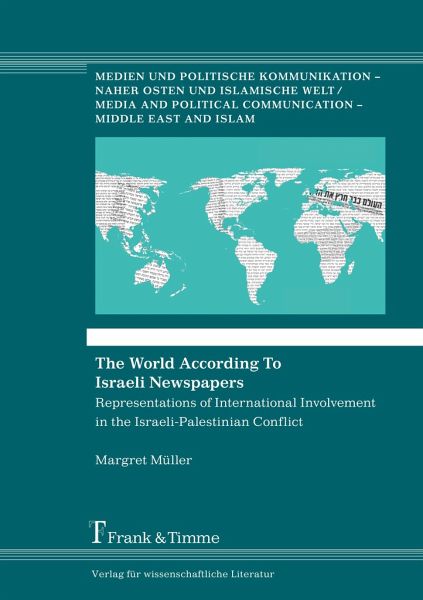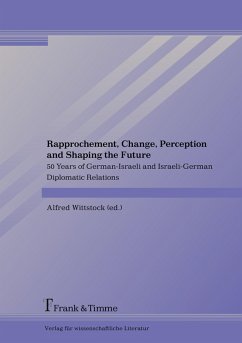
The World According To Israeli Newspapers
Representations of International Involvement in the Israeli-Palestinian Conflict

PAYBACK Punkte
0 °P sammeln!
Since its outbreak, the Israeli-Palestinian conflict has been shaped by international involvement. These external engagements in the conflict are primarily transmitted to Jewish Israelis through the Israeli mass media. These media portrayals shape not only perceptions of the "global" attitudes towards the conflict, but in so doing they also influence and legitimize domestic political debates and decisions. This research is guided by the question how Israeli newspapers represent international involvement in the Israeli-Palestinian conflict. How is the involvement contextualized and how qualifie...
Since its outbreak, the Israeli-Palestinian conflict has been shaped by international involvement. These external engagements in the conflict are primarily transmitted to Jewish Israelis through the Israeli mass media. These media portrayals shape not only perceptions of the "global" attitudes towards the conflict, but in so doing they also influence and legitimize domestic political debates and decisions. This research is guided by the question how Israeli newspapers represent international involvement in the Israeli-Palestinian conflict. How is the involvement contextualized and how qualified? Do societal constructs and beliefs shape the media representations and if so, in which manner? Do media representations differ in times of crisis and routine? Margret Müller explores these questions in a content analysis of the four general daily Israeli newspapers' media coverage during the Gaza flotilla raid 2010.













